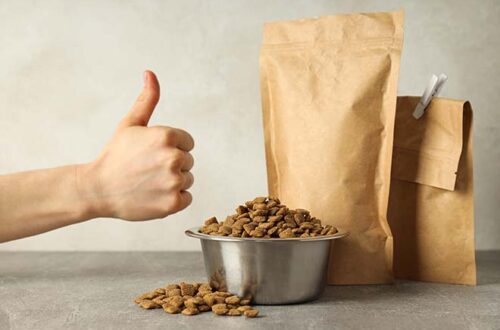38.4 percent of American households have a dog. However, many families still don’t know about all of the things that their dogs can and can’t eat.
When trying to decide what special treats and snacks you can give your dog, you should think carefully about whether you give them nuts or not. As you might expect, the answer isn’t very clear-cut. While some nuts are okay for your dog to eat, others should be avoided at all costs.
In this guide, we’ll tell you about 4 nuts dogs can eat safely.
Things to Think About When Giving Nuts to Your Dog
The truth is that some nuts are worse than others for feeding your dog. Some nuts are toxic to dogs and can cause serious harm to their bodies.
Keep in mind, however, that feeding nuts of just about any kind to a dog could pose a variety of different problems. Here’s what you should consider.
Calories and High Fat
Dogs can experience problems when eating nuts due to their high levels of fat content and high calories. Due to the fat content of nuts, it’s possible that eating too many nuts can lead to pancreas inflammation, known as pancreatitis.
There are many signs that your dog may have pancreatitis, including loss of appetite, lethargy vomiting, diarrhea, and more.
Additives and Salt Content
Another thing to consider is that certain added ingredients that are present in various types of packaged nuts can also be potentially dangerous for dogs as well.
Specific nut coatings such as cocoa, garlic, pepper, and salt can lead to GI upset and other problems.
The high salt content in nuts can lead to high blood pressure and could make other conditions your dog has worse.
Practicing Moderation
If you want to feed nuts to your dogs, you’ll want to think carefully about which ones you feed them. You should consider the fat content as well as these other factors.
In moderation, certain nuts can be a great treat for your dogs, but make sure that you feed them wisely. Avoid overdoing it and make sure that you always understand all of the ingredients or coatings that are on the nuts you give them.
Also, make sure that the nuts you give your dogs are a size that they can swallow easily. Consider breaking them up first if you’re unsure. Dogs can have difficulty swallowing some types of nuts.
What Nuts Can Dogs Eat?
So if you want to give your dog some nuts to eat, which should you choose? Here are 4 types of nuts that you may want to give your dog.
1. Peanuts
While they’re technically legumes instead of nuts, peanuts are generally perfectly safe for a dog to eat. However, as mentioned above, you should avoid any harmful coatings or additives.
So can dogs eat peanuts? The answer is yes, but you should also make sure that peanuts are removed from their shells before feeding them to your dog.
Peanuts can offer your dog some good nutrients and protein, so they can be fairly healthy. However, you need to make sure that you pay attention to the fat and calories when feeding a dog.
In addition to peanuts, peanut butter is generally safe as well. However, you’ll want to avoid peanut butter that contains highly toxic ingredients and sweeteners such as xylitol when feeding a spoonful of peanut butter to your dog.
2. Cashews
While not as clear-cut as peanuts, it’s generally safe to give a few cashews to your dog at once. However, like with other nuts, you’ll want to avoid salt and other harmful ingredients when feeding cashews to your pet.
Also, remember that the cashews should be roasted or baked rather than raw. Raw cashews have dangerous toxins in them that may have minor effects on your dog.
With cashews, you’ll particularly want to be aware of the potential for choking. For both small and large breeds, cashews could serve as choking hazards or could potentially cause an intestinal blockage.
3. Chestnuts
Chestnuts can serve as a good source of fiber and also includes vitamins and minerals such as vitamin C, B vitamins, potassium, copper, and iron.
While these nuts aren’t toxic to your dog, they do suffer some of the same problems as other nuts and could be harmful if you allow your dog to overdo it.
As with other nuts, you should make sure that you only feed plain chestnuts to your dog. You should also be sure to keep the potential for choking in mind as well.
4. Hazelnuts
If dogs eat hazelnuts in moderation and without salt or coatings of any kind, then they can be an option.
However, this is one of those nuts that could potentially be a choking hazard and they generally shouldn’t be eaten whole. Make sure that they’re broken up enough so that a small dog can eat them.
Even if a large dog can eat them whole, it’s still best avoided. While hazelnuts may not get stuck in the throat of larger dogs, they could still cause intestinal blockages, so make sure that you keep this in mind when feeding them to your dog.
Nuts That Your Dog Should Avoid
There are several other nuts that are similar to the nuts above. While they can be eaten by your pet, they could potentially cause issues. Brazil nuts, in particular, aren’t necessarily toxic but they do contain a lot of fat, so you need to make sure that your dog avoids them.
On the other hand, some nuts are toxic to your dog. Nuts such as pistachios, almonds, and pecans may have aflatoxin which could cause liver damage to your dog. When dogs eat walnuts and macadamia nuts, it can also cause serious problems, so you’ll want to avoid feeding these to your dog as well.
Understanding the Nuts Dogs Can Eat
If you’re trying to find nuts dogs can eat, be sure to focus on peanuts, cashews, chestnuts, and hazelnuts. However, be sure that your dog eats nuts in moderation and pay attention to the potential problems that could occur.
Need more pet care tips? Read over our blog to find more helpful guides now.






